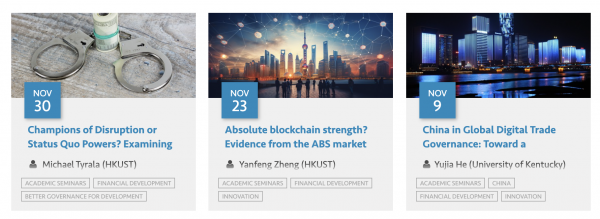Champions of Disruption or Status Quo Powers? Examining the Complex Roles of China and India in Global Tax Governance
SHARE THIS

The ascendance of the G20 to unprecedented prominence in the global policy arena has the potential to further the erosion of the liberal international order but also to stabilize it by co-opting the most influential emerging market powers through the dominant institutions of global governance. Since this ascendance, much research had been done on the involvement of these powers in nearly every area of global governance except for international taxation, which remains largely neglected. This article partly fills this gap by examining the complex roles of China and India in the ongoing G20/OECD regulatory efforts against the global scourge of offshore tax evasion and avoidance, specifically in the negotiations over the Common Reporting Standard (CRS), the Base Erosion and Profit Shifting Project (BEPS), and the two pillars of the so-called BEPS 2.0. Employing the theoretical and conceptual tools of world-systems analysis, and combining them with data from dozens of extensive interviews with key local and international stakeholders, it compares the distinctive approaches used by China and India to further their objectives in this area, analyzes the extent to which their respective actions have been part of a consistent grand strategy or mere contingency, and discusses what implications their roles will have for the future of global tax governance.
This paper is co-authored with Yujia He (University of Kentucky).
About the speakers
Michael Tyrala is an interdisciplinary social scientist currently serving as Lecturer at the Division of Public Policy of the Hong Kong University of Science and Technology. His research interests lie at the intersection between global political economy, international relations, development studies, historical macrosociology, and social psychology. His primary focus is on the historical and contemporary trajectories of the global offshore economy, on the social forces that struggle against it and shape global tax governance, and on the evolving impacts of these struggles on the structural dynamics that constitute late capitalism. He is co-author of “The Uneven Offshore World: Mauritius, India, and Africa in the Global Economy”, published with Routledge, but his work also appears in journals such as Globalizations, Nature Communications, PNAS Nexus, and Scientific Data, and soon also in an edited volume on the Covid-19 pandemic forthcoming with Oxford University Press.
Yujia He is an assistant professor at the Patterson School of Diplomacy and International Commerce, University of Kentucky. She is interested in science and technology policy, international political economy, and economic development in the Asia-Pacific region. Her current and past projects study smart cities and cross-border partnerships, Chinese tech firms’ overseas expansion, the geopolitics and governance issues surrounding emerging technologies, digital trade governance, rare earth trade and governance, and citizen science. Working at the nexus of science and technology and international affairs, she has published in journals such as Third World Quarterly, Information Communication & Society, Financial Innovation, Journal of Urban Affairs, Resources Policy, Georgetown Journal of Asian Affairs, and numerous think tank reports. ... More >>
About the moderator
Justin Robertson is an Associate Professor in the Department of Public and International Affairs at City University of Hong Kong. He is a scholar of International Political economy, with his work focused on global business forms in emerging markets, contested aspects of global finance, citizenship by investment, and sustainable finance. More >>
Notes
- Please note that this event will be recorded. The complete or parts of the recording may be published on our social media channels in future.
- Please be informed of our bad weather policy which applies to all events we organize.
- Please direct all your enquiries to iems@ust.hk .
- If you attend the event by Zoom and require assistance during the event, please send an email to iems@ust.hk . We apologize in advance for any delays in responding to your emails during the event, as we may have limited staff available to address them promptly.
Also in November...
Get updates from HKUST IEMS







